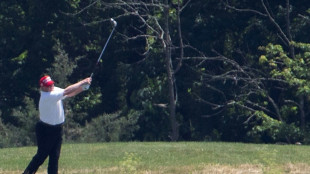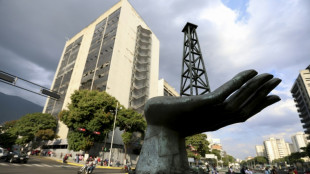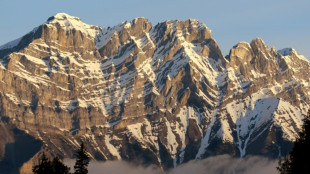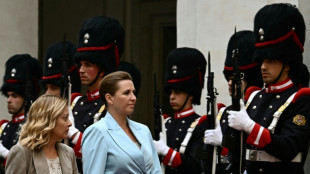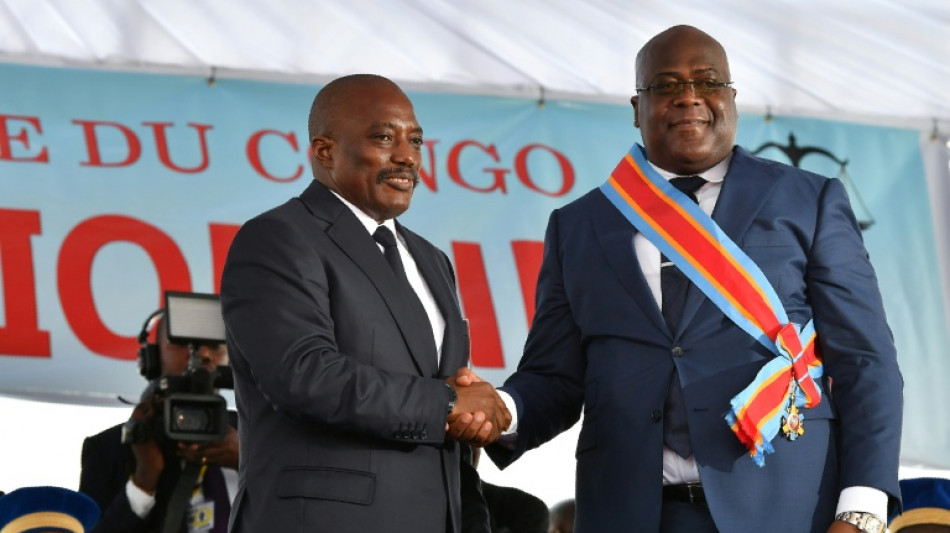

DR Congo ex-leader Kabila loses immunity to 'treason' probe
The Democratic Republic of Congo's Senate on Thursday voted to lift the immunity of ex-president Joseph Kabila, whom the government accuses of supporting a Rwanda-backed militia in the mineral-rich east.
By 88 ballots to five, the upper house backed exposing the 53-year-old to prosecution on charges of supporting the M23 armed group, which has seized swathes of the eastern DRC with Rwandan support.
His successor, President Felix Tshisekedi, accuses Kabila of conspiring with the M23, whose recent lightning offensive has intensified the more than three-decade-long eastern conflict.
Kabila, who has been outside the country since 2023, was not present in the chamber at the time of the vote, while his entourage will not reveal his current whereabouts.
By the vote, "the Senate authorises the prosecution and lifting of Joseph Kabila's immunity," declared the upper house's speaker Jean-Michel Sama Lukonde.
The former president, who led the DRC between 2001 and 2019, now faces the prospect of being tried in military courts for "treason, war crimes, crimes against humanity and participation in an insurrectionary movement".
On leaving power, Kabila became the first former DRC leader to obtain the honorific title of senator for life and with it, parliamentary immunity.
To allow legal proceedings to move forward, the Congolese army's public prosecutor lodged a request for the Senate to lift that privilege.
- Questions over process -
In response, the Senate created a special commission to rule on the matter, which presented its conclusions to the upper house on Thursday.
The 40-person commission voted unanimously in favour of that recommendation, said senator Carole Agito Amela, speaking for the commission.
Congolese constitutional experts had argued to AFP that the vote to strip him would require a two-thirds majority in both houses of parliament, where Tshisekedi's coalition enjoys a significant majority.
But as requested by the army prosecutor's office the Senate voted to accept that it was capable of ruling on the matter without calling on the National Assembly.
In large part, the army's case hinged on testimony by opposition figure Eric Nkuba, who when questioned claimed to have overheard Kabila advise the M23's leader to remove Tshisekedi by coup rather than by assassination.
Senior political researcher Ithiel Batumike of the Ebuteli research institute told AFP that confession was extracted under duress.
However in his hearing the army prosecutor insisted to the commission that his statement was "credible and constant", Agito Amela added.
While arguing that proof for both Kabila's travels in the M23 and the investigations into his financial backing for the M23 were covered by secrecy rules, the army prosecutor insisted to the commission such evidence was in existence, the senator said.
- 'Weaken an adversary' -
It comes after he hinted in recent months at making a comeback to the DRC and made increasingly vocal criticisms of Tshisekedi.
No evidence of his return however has ever emerged.
But since then, the government has suspended his People's Party for Reconstruction and Democracy (PPRD), while security forces have raided several of his properties.
Batumike argued the move to lift his immunity was "a political act" which could be "interpreted as a means to weaken a political adversary".
PPRD Deputy Secretary-General Ferdinand Kambere told AFP that Kabila's prosecution was pure "theatre" designed to distract the Congolese people from debates on the conflict and corruption.
Congolese political analyst Christian Moleka likewise told AFP that the vote in favour could "reduce internal capacities for cohesion" and lead to a "risk of radicalisation and reinforcement of political rifts".
O.M.Jacobs--JdB
